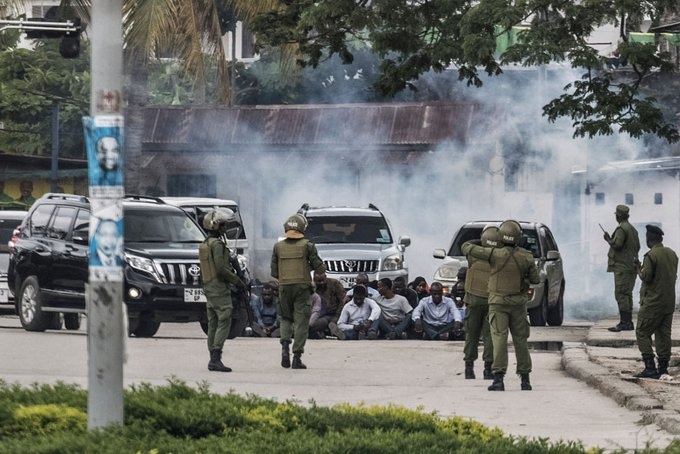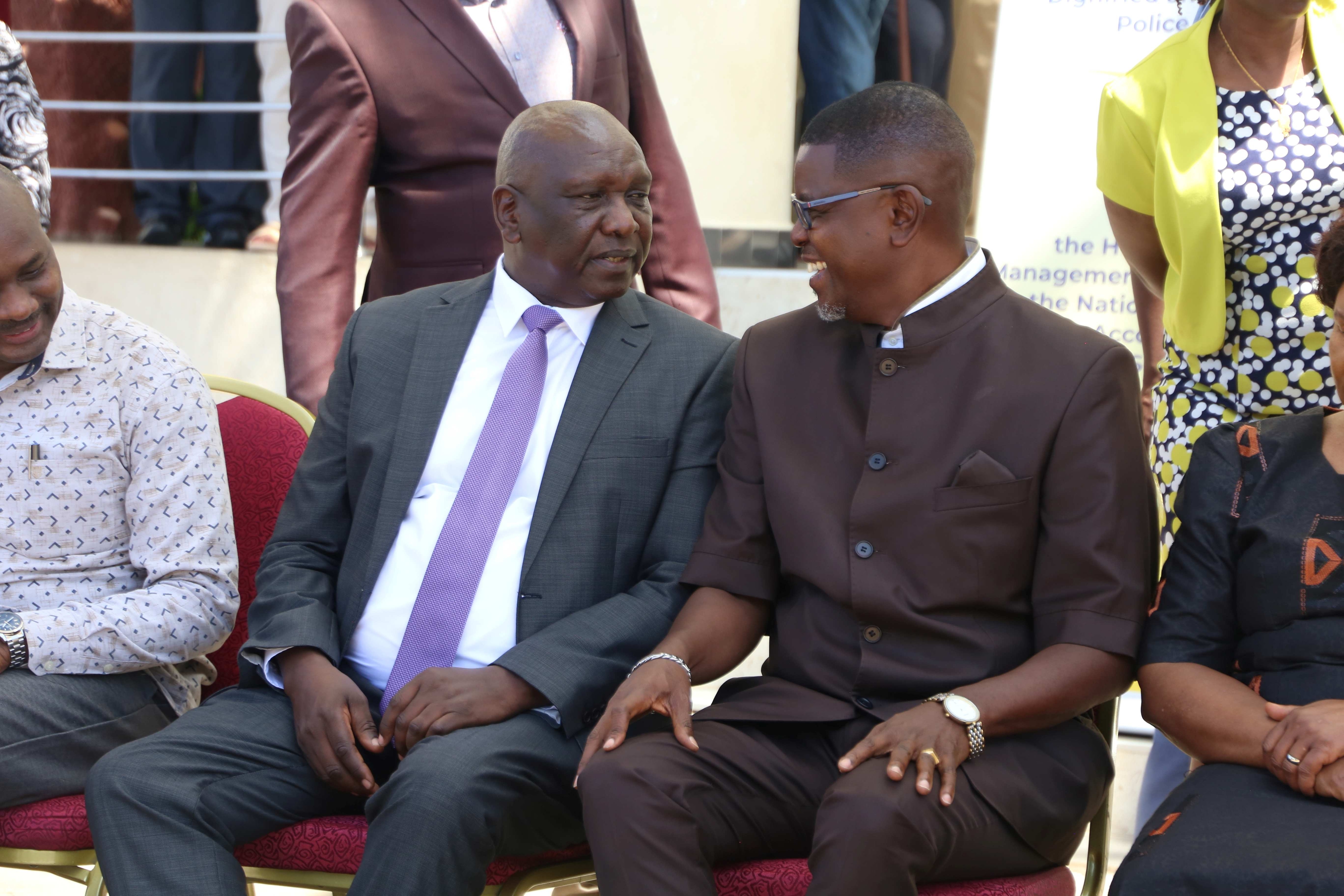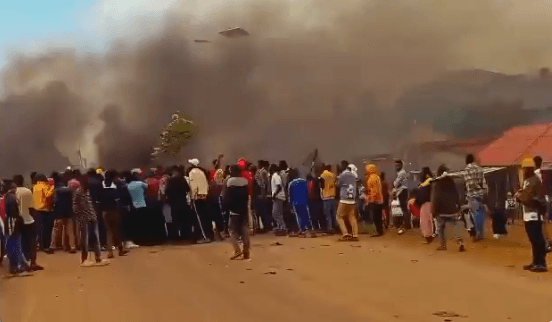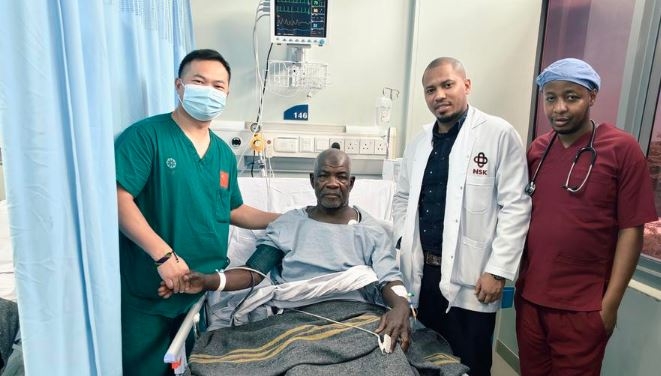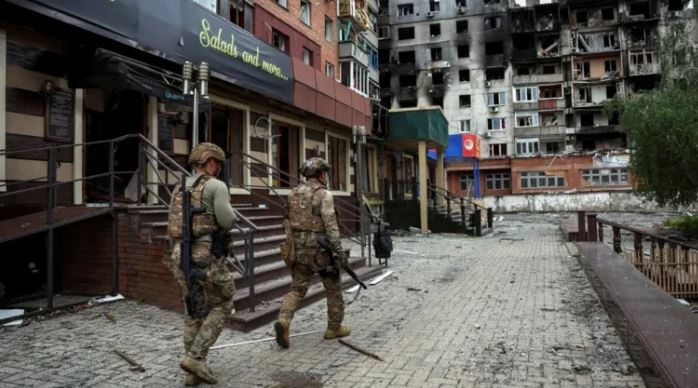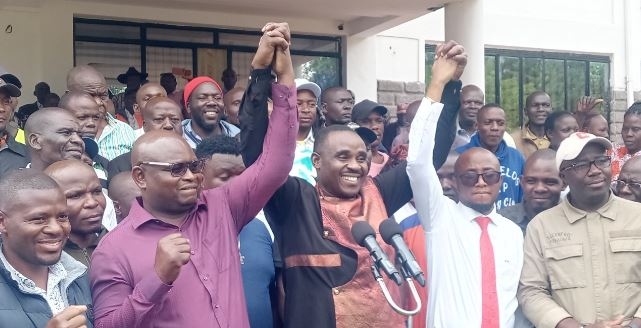There is a famous military quote attributed to Arthur Wellesley, the first Duke of Wellington, then a leading military figure in the Napoleonic wars. He is said to have looked at his ragtag army and exclaimed:
“I don't know what effect these men will have upon the enemy, but, by God, they frighten me!”
The circumstances and the context of the exclamation are vastly different from which the duke had raised the famous expression but as a combat KDF veteran, I could easily have made the same exclamation when I saw a contingent of the KDF rolling out of their barracks in full combat gear and setting out for the Nairobi city presumably to restore order following the recent demonstrations.
My getting frightened was tied to actually several factors.
One is the sheer weight of death and destruction that was weighting that contingent. At a glance, it consisted of several armoured personnel carriers, several troop-carrying vehicles, pickups and command vehicles. The total number of personnel could well reach a figure of 200 under — I'm supposing — the command of an officer of the rank of a major.
Each of the soldiers had a personal weapon, well calibrated, zeroed and as always ready for action. Each man was, as per standing operational procedure, clad in anti-fragmentation jackets designed to reduce the direct impact of an incoming enemy bullet.
What however frightened me were the weapons zeroed on top of the armoured personal carriers. Unlike the personal weapons, the bundes on the APCs are of another level. They are heavy machine guns with a calibre of 12.7 mm, a calibre being the diameter at the base of the ammunition.
I have seen the weapons in the Somalia theatre. For the unlucky few unschooled in this matter, the AK-47 calibre is 5.56 mm, with the ubiquitous G3 rifle being 7.62mm (do your math).
Al Shabaab, the jihadist group in Somalia, calls this 12.7 mm weapon the kacha kacha because of the sound it makes when fired, it coughs.
A smooth cough breaks a man in two and that is at a range of over one kilometre, a deliberate cough brings down a sturdy tree, and a sustained cough brings down a wall. Understand then my reasons for being frightened.
A military fighting contingent never leaves the camp without written orders with every soldier clear in his mind what their exact mission is. this is easy when in a situation of a defined enemy and an open terrain.
However, it gets murkier when you have to deal with a situation like what is now at hand. Murkier, because you cannot configure an enemy who is about your age, armed with a mobile phone and a water bottle, and is waving the flag of the republic.
Murkier when the supposed enemy is marching towards you without care in the world. Murkier because they are all recording your action with their latest gizmos. Murkier because you are in an unusual terrain where fields of fire are not only restrictive but also the said enemy may emerge from any direction.
The orders to the contingent, I suspect, are “to assist the civil authority in restoration of law and order and to bring normalcy”. The orders are intentionally made vague because of the many likely permutations bound to emerge.
So the expected reaction of the soldier is to use his judgment and pray that in the event of a big miscalculation, the court martial in its wisdom (and in room temperature conditions) would understand and apportion appropriate blame to the heat of the moment.
I had reasons to be further frightened for the men and women in command of the KDF detachments. They knew that in their training and knowledge, the military deployed in internal security operations was subservient to the civil authority with the police having primacy.
But then that is only possible if the deployed two or more security enforcers have worked together and gelled properly. It is not that easy; senior officers in the disciplined services have deep egos, and it comes with the training and job. They are bound to rub each other wrong and this misunderstanding trickles downwards to their subordinates and operational friction creeps in with possible calamitous results.
it gets more frightening when the tactical gets strategic. In the military chain of command, the corporal in the military fighting unit has rich experience and commands two or more squads of junior soldiers. But then, his rank and exposure nullify him to be a policymaker.
Deployments in the urban terrain are prone to be more small tactical engagements involving small squads with the corporal as the commander. Should there be a miscalculation on his part with untoward results, his wrong judgment is bound to reverberate loudly in the international arena and with strategic consequences, hence, the coining of the term strategic corporal.
Military engagements in urban settings and when dealing with civilians like in the present scenarios in our cities are prone to lead to the rise of several strategic corporals. Here is the quandary for the corporal, he is very well trained but not for this kind of constantly changing operational environment.
His dealing with civilians is nil, and he lacks the legal guard rails for even making an arrest. Therefore should he be faced with such a fluid and confused situation, he can only do what he knows best and that is blasting his way out of the situation not exactly counting the consequences of such a rash decision. We are bound to experience the rise of the strategic corporal in our country soon.
Finally, in my various engagements with military officers from other countries, particularly those who have witnessed long-drawn internal strife necessitating the deployment of the military.
The soldier’s greatest fear is to be tasked to lift his weapons against his countrymen. It causes such mental anguish and role conflict and even after the cessation of hostilities the nation’s respect for its warriors is never fully restored.
This makes me justifiably very frightened.
Former military officer. [email protected]


